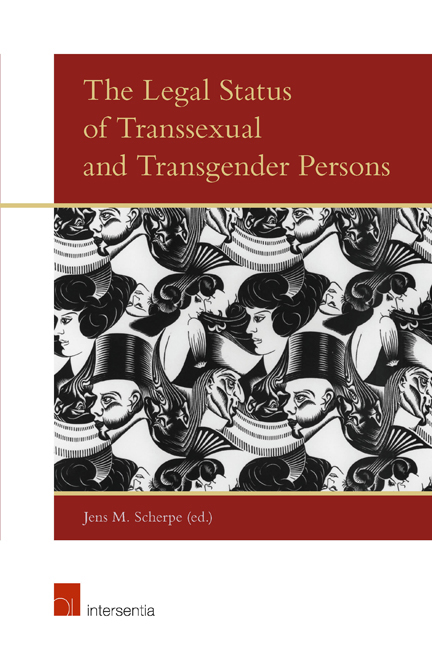USA
from North and South America
Published online by Cambridge University Press: 28 November 2017
Summary
LEGAL FRAMEWORK AND STATISTICS
OVERVIEW
The legal status of individuals with regard to gender is a complex matter in the United States (US), made even more so by the divisions of legal power within the nation. The US Constitution enumerates the powers that it confers on the legislative and executive branches of the federal government, authorising them to regulate taxation, interstate commerce, and international travel. As such, the federal government issues passports and establishes a national registry with identity numbers for individuals in relation to taxes, employment, and receipt of federal benefits. However, the states also have broad powers to regulate the public health and welfare within their borders, provided that they do not conflict with federal law, the US Constitution, or their own state constitutions. These jurisdictions register births and provide identity cards used in daily life. Both the federal government and the states allocate responsibility for each identity document to different agencies, with separate rules for the documents and registries that they maintain. As a result, citizens and residents of the United States may have multiple legally registered identities that are independent of each other, such that changing one document often has no impact on the other.
Persons wishing to correct their registered gender in much of the United States face numerous administrative barriers in doing so. This is largely due to the diversity of rules in the states, which are often inconsistent, even within individual jurisdictions. The most recent comprehensive study of transgender persons in the United States reported that only approximately one-fifth (21%) of persons who transitioned gender had been able to correct all of their identity documents, and two-fifths (41%) had not corrected their identity cards used in daily life. These administrative problems may explain why quality data is lacking to estimate the numbers of Americans who may have been diagnosed as transsexual or who have successfully corrected their registered gender. The US Census Bureau collects data on gender, but does not ask respondents whether their gender identity matches their gender registered at birth. Federal law protecting the privacy of health care information also effectively prevents substantial disclosure of statistics about the transgender population. As such, the full extent of the population most affected by gender registry laws remains largely unknown.
- Type
- Chapter
- Information
- The Legal Status of Transsexual and Transgender Persons , pp. 585 - 612Publisher: IntersentiaPrint publication year: 2015



